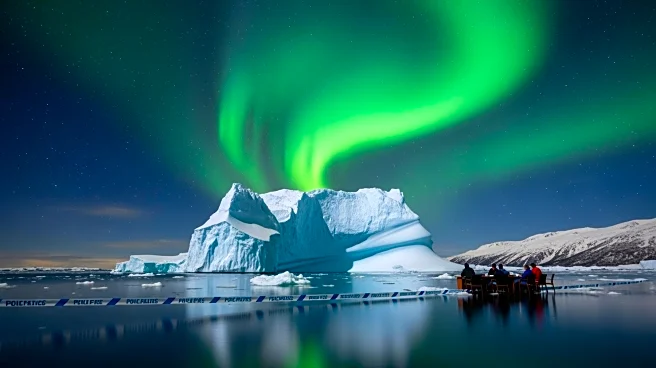What's Happening?
Iceland's cruise industry is facing a significant downturn due to new government policies that are set to be implemented over the next few years. These measures include an infrastructure fee on cruise passengers and the removal of customs and VAT exemptions
for smaller vessels. As a result, cruise arrivals are projected to decrease by 17% in 2026 and by 37% in 2027, compared to last year's record of nearly 100 ships and 1,200 port calls across 40 Icelandic locations. The impact is already being felt, with the Ísafjörður Port expecting to lose around ISK 1.5 billion in 2026-2027. Local businesses tied to the cruise industry, such as bus drivers, guides, and cafes, are also expected to suffer.
Why It's Important?
The decline in cruise arrivals could have a profound impact on Iceland's tourism sector, which is a significant contributor to the country's economy. The loss of revenue from cruise passengers will affect not only the ports but also the local businesses that rely on the influx of tourists during the cruise season. Municipalities that have invested in expanding harbor facilities may find these projects unviable if the expected income does not materialize. The situation is particularly dire in East Iceland, where the mayor of Múlaþing has described the expected drop in ship arrivals as a 'complete collapse.' This could lead to long-term economic challenges for regions heavily dependent on cruise tourism.
What's Next?
Stakeholders in the Icelandic cruise industry are likely to push for a reconsideration of the government's policies to prevent the projected decline in arrivals. Municipalities and local businesses may lobby for the retention of customs and VAT exemptions to sustain their operations. If the policies are not reversed, regions like Seyðisfjörður, which are expanding their ports to accommodate large ships, may face years of reduced income. The government may need to balance its policy objectives with the economic needs of the tourism sector to avoid long-term negative impacts.
Beyond the Headlines
The situation raises broader questions about the sustainability of tourism-dependent economies and the role of government policy in shaping industry outcomes. The potential decline in cruise tourism could prompt a reevaluation of how Iceland manages its natural resources and tourist attractions, possibly leading to a shift towards more sustainable tourism practices. Additionally, the economic strain on local businesses could lead to increased calls for diversification of the economy to reduce reliance on seasonal tourism.
















